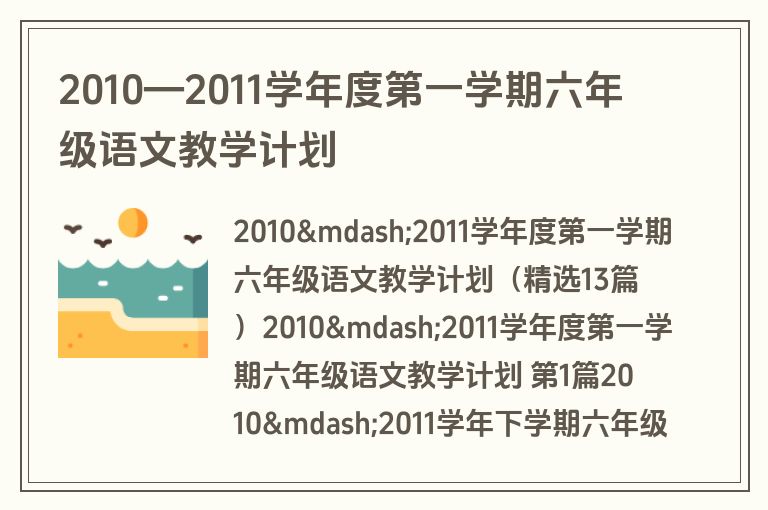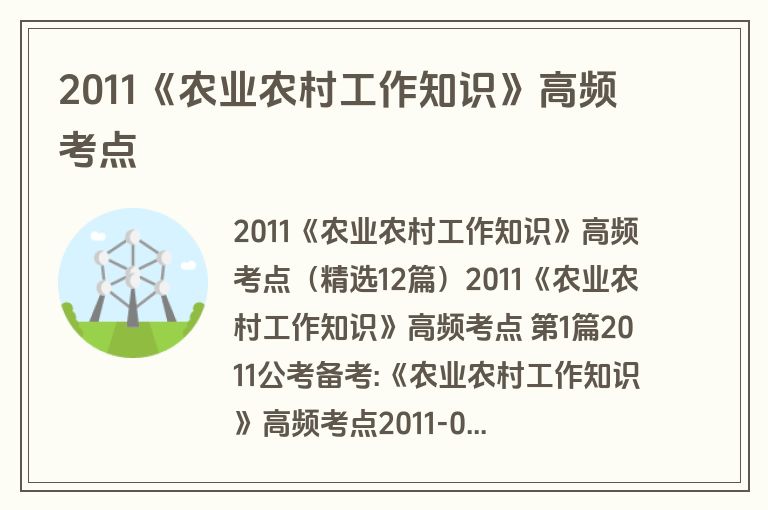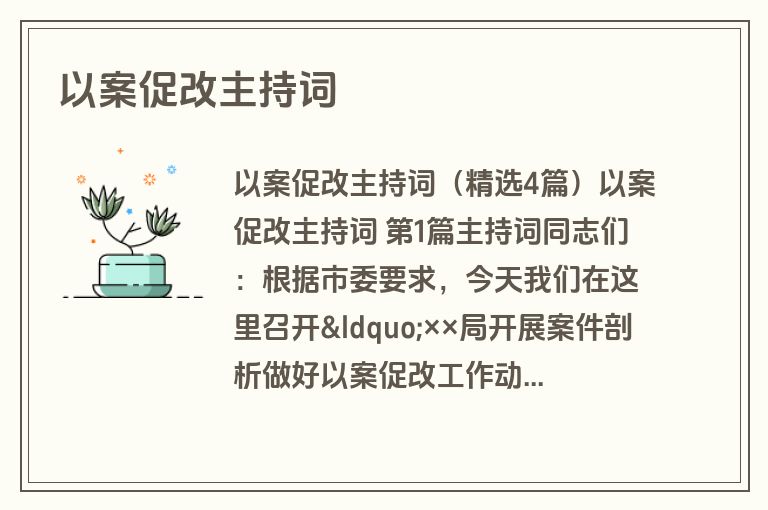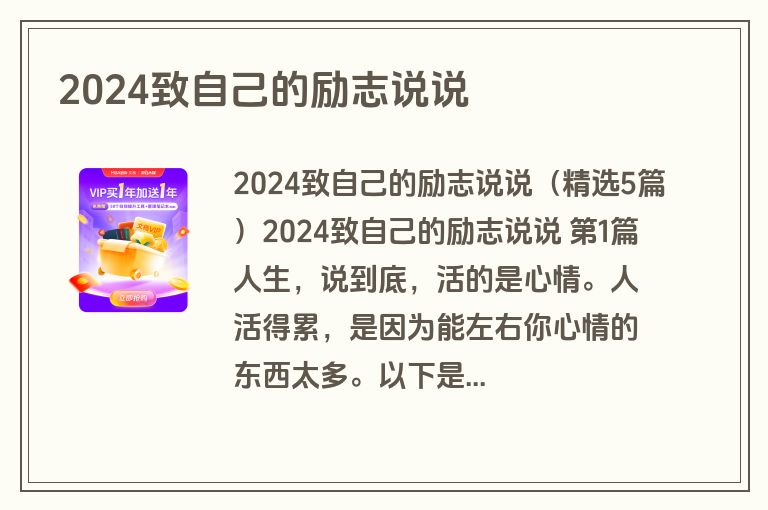牛津七年级Unit(精选6篇)
牛津七年级Unit 第1篇
dailyadj.每日的,日常的 articlen.文章
neveradv.从不
table tennisn.乒乓球
ridev.骑,驾驶
usuallyadv.通常地
soconj.因此,所以
seldomadv.不常,很少 geographyn.地理
breakn.休息
belln.铃,钟
ringv.(使)发出钟声,响起铃声 endv.结束,终止
bandn.乐队
practicen.练习
togetheradv.在一起
marketn.集市,市场
guitarn.吉他
graden.年级
junior high school初级中学 on foot步行
take part in参加
have a good time 过得愉快
go to bed去睡觉
get up起床
牛津七年级Unit 第2篇
2. What is this scarf made of?这条围巾是什么做的?be made of...是“由制成”的意思。(P99)
3. I hope you enjoyed your day. 我希望你今天玩得愉快。hope可用hope to do sth.结构,但不可用hope sb. to do sth.结构。(P100)
4. Did she help you with the shopping on Tuesday?她星期二帮助你购物了吗?help sb. with sth.=help sb. (to) do sth.,意为“帮助某人做某事”。(P94)
5. Everyone had fun at the fashion show.在时装表演期间每个人都玩得很开心。have fun=have a good time=enjoy oneself,意为“玩得开心”、“过得愉快”。(P89)
6. I can spend 10 more minutes in bed then.那么我可以再睡十分钟。spend可用于表达“花费(时间;金钱)”,用于句型:sb. spends money / time (in) doing sth. / on sth.。(P86)
7. They match my blue T-shirt.它们和我的蓝T恤衫很相配。match在这里的意思是“与相配”。(P103)
8. I borrowed these long red boots from my mother.我从妈妈那儿借来了红色的长统靴。borrow sth. from sb.意为“从某人处借来某物”。(P91)
9. We needed some exercise so we walked around the shopping mall for a long time.我们需要锻炼,因此我们在购物中心逛了好长时间。so(因此)是并列连词,不可和从属连词because(因为)用于同一个句子中。walk around意为“四处走走”。
I. 完成下列句子。
1. I like this skirt. Can I ________ (试)?
2. This pair of sport shoes ________ (非常适合我).
3. Please ________ (把这些单词写在黑板上).
4. The man ________ (站在树下) is a teacher.
5. The woman is crying over there ________ (把手放在肚子上).
II. 单项选择。
1. This pair of shoes is old, please buy a new ________.
A. one B. pair C. shoe D. shoes
2. They say Beijing is a nice place ________.
A. go to B. going C. to go to D. to go
3. He is going to a party. He doesn’t know ________today.
A. to wear what B. what to wear C. what wearing D. how to wear
4. I have a good friend ________ Tom.
A. is called B. called C. calls D. call
5. I ________ a book from the library yesterday.
A. borrow B. lend C. kept D. borrowed
6. This coat ________ wool.
A. is made from B. is made of C. is made in D. is made by
key:
I. 1. try it on 2. fits me quite well 3. write these words down on the blackboard 4. standing under the tree 5. with her hands on her stomach
II. 1-6 ACBBDB
牛津七年级Unit 第3篇
一、低年级英语课堂的构思
1.热身活动阶段。教师可以使用诸如“Magic eyes”之类的游戏, 不仅可以帮助学生回忆旧知, 也可以使旧知与新的功能句与单词重组, 从而为丰富学生的语言输出奠定基础。
【例1】笔者利用游戏Magic eyes, 帮助学生回忆与表示位置有关的单词, 为之后的新知操练做好铺垫。
2.呈现新学习内容阶段。在热身活动之后, 教师可以引入本节课的新功能句或单词, 并尝试使用图片或肢体动作来引导学生领会新功能句或单词的含义, 真正做到在真实的语境中学习英语, 而不是单纯地依靠汉语理解。
【例2】在呈现Where’s the…?这一新功能句时, 笔者借助三张天使的图片, 在播放课件时, 三只天使同时消失, 呈现“Where’s the angle?”, 让学生借助图片初步感知Where’s the…?及其含义。然后自然过渡到课文情境, 引出本节课的新功能句。学生跟磁带朗读, 模仿语音、语调。
3.语言学习与操练阶段。教师借助自编的歌谣, 进一步巩固新单词与功能句, 深入感知英语语音、语调和节奏。与此同时, 学生开展一场朗读小竞赛, 比比谁读得更准、更流利、更富有感情。
教师借助“小火车”的形式, 引导学生感知功能句中的单词排列顺序。为了避免操练内容过于单一, 教师可让学生分别对功能句的问句和答句进行排序, 并将每一小题还原为一段完整的小对话。
4.语言运用阶段。学生根据图片或实物, 结对运用新功能句和单词进行对话;与此同时, 教师借助教材中歌曲的曲调, 将学生的对话以歌曲的形式再次呈现。然后, 教师呈现学生不同类型的练习, 难度由易到难。
教师播放歌曲视频, 既能作为完成练习的奖励, 也能再次激发学生的学习兴趣;教师呈现学生一段与课文内容类似的小故事, 从而进一步巩固、运用所学知识。
二、低年级英语课堂的反思
1.充分体现语言学习的渐进性。低年级英语教学能明显地体现出语言学习的渐进性, 并且符合维果斯基的“最近发展区”理论:学生如何在教师的引导下, 从已有的英语知识水平提高到能够达到的新的英语知识水平。笔者认为, 这种语言学习的渐进性体现在两个方面:一是单词与功能句的渐进性;二是语音的渐进性。在日常的教学过程中, 教师会更多地关注到前者, 因为新旧单词与功能句更易于区分;而语音的渐进性由于其隐蔽性, 所以往往会被忽视。
2.合理使用游戏、歌曲、歌谣等形式。游戏、歌曲、歌谣等形式符合低年级学生的认知特点, 不仅激发了英语学习兴趣, 同时也在一定程度上满足了学习需求。这就要求教师确保游戏、歌曲、歌谣等形式能够有效地增加语言输入与促进语言输出, 而不仅仅是激发学生的学习兴趣。如例4, 笔者通过Magic eyes不仅复习了旧知, 同时也为旧知和新功能句与单词的重组奠定了基础。在歌曲《On, in, under》的处理上, 笔者先采用音频的方式呈现, 并只播放其中的一部分, 从而明确地强调新知识;在学生完成书面练习后, 再播放该歌曲的视频, 不仅再次激发了学生的学习兴趣, 同时也让学生巩固了新知识。同时, 笔者使用教材中歌曲《The dog is in the plane》的曲调, 将学生的对话编成一首歌:Where’s the rubber?Where’s the rubber?Hi-ho, the der-ry-o.It’s on the sofa.另外, 笔者也编写了一首高质量的歌谣, 力争做到每句话的音节大致相同, 每句话的韵尾也大体相似:Plane, plane.Where’s the plane?On the sofa.Peekaboo.Plane, plane.Where’s the plane?On the sofa.Peekaboo.
3.保证足够的课堂朗读时间。在本节课上, 笔者用较多的时间来朗读课文, 虽然显得有点枯燥与机械, 但这不正是语言学习的本质过程吗?反复朗读, 形成正确的语音、语调。事实上, 那些在游戏、歌曲、歌谣包装下的语言操练, 其本质不也是反复操练单词与功能句吗?况且, 某类游戏、歌曲、歌谣的使用频率过高后, 学生同样也会觉得枯燥乏味。因此, 略带机械式的语言操练在学生形成扎实的语言基础上的作用与游戏、歌曲、歌谣的作用是一样的。
4.遵循基本教学步骤, 合理整合与创新, 让公开课常态化。每当听完低年级的英语公开课, 笔者总会感觉到低年级英语教师都恨不得把整个单元的所有内容都整合在一堂课上, 可是这样的做法在常态课上可行吗?所以, 这就要求教师遵循基本的低年级英语教学步骤, 尽量多地将旧知与新知巧妙地融合起来, 合理地创新与拓展, 力争让每一节常态课也能焕发出公开课的风采。
牛津七年级Unit 第4篇
(A)根据句意及首字母提示,完成句子。
1. Toronto is a big city in C____.
2. I have a p____ pal. We often write to each other.
3. “What l____ do you speak?” “Chinese.”
4. I have friends all over the w____. They are from the USA, the UK and other countries.
5. I want to go to A____ to meet my pen pal in Sydney.
(B)用括号中所给单词的适当形式填空。
6. The girl can speak a little ____(Japan).
7. My grandfather ____(live) with us.
8. Which ____(country) do you like, France or England?
9. Lucy ____(have) a friend in Tokyo. His name is Rick.
10. Julie is from France. She ____(speak) French.
Ⅱ. 单项填空。(共15小题,每小题1分,共15分)
1. “Where is ____?” “It is in ____.”
A. Paris; EnglandB. Sydney; Canada C. London; Australia D. New York; America
2. ____ you from England?
A. DoB. AreC. WhereD. Is
3. Lucy ____ England. She is ____.
A. come from; EnglishB. is from; a English
C. come from; an English D. comes from; English
4. I play volleyball ____ my friends ____ weekends.
A. with; onB. with; inC. about; onD. and; in
5. What ____ does she speak?
A. lessonsB. subjectsC. languageD. works
6. Lucy, Lily and I ____ Chinese food.
A. are like allB. all likeC. are all like D. all are like
7. ____ do you come from?
A. WhenB. WhyC. HowD. Where
8. “____ that girl in a red skirt?” “It’s my friend Mary.”
A. Who’s B. Whose C. WhoD. Where’s
9. Please write ____ tell me about yourself.
A. but B. or C. andD. so
10. I like ____ sports.
A. playing theB. playing C. plays D. playing a
11. I want ____ French with a Frenchman.
A. speakB. to talkC. say D. to speak
12. “Where is Tokyo?” “Tokyo is ____ Asia.”
A. inB. onC. at D. from
13. Mr King can speak ____ foreign languages. He really has a talent for languages.
A. a littleB. a few C. littleD. few
14. ____ is the capital of ____. They speak ____.
A. London; England; FrenchB. Ottawa; Frenchman; French
C. Paris; France; French D. Sydney; Australia; Australian
15. Mr Black ____ in Toronto.
A. liveB. living C. to live D. lives
Ⅲ. 完形填空。(共10小题,每小题1分,共10分)
Dear Lin Feng,
Thank you __1__ your postcard. Now I have many friends here. Jimmy is one of __2__. He is my classmate. He is __3__ Australian. He often asks me __4__ to his house for dinner __5__ his parents. His family like China very much. At school, we have good teachers. One of them __6__ the US, and we call her Miss Green. She teaches us English. Our French teacher is from Paris. He loves us very much, and we all love him, __7__. Our Chinese teacher is Mr Scott, __8__ father. After school, he often __9__ to me in Chinese.
How about your English now? I want to know something __10__ you very much. Please write to me soon.
1. A. ofB. forC. toD. with
2. A. themB. theyC. theirD. theirs
3. A. aB. anC. theD. /
4. A. goesB. goC. to goD. going
5. A. andB. forC. withD. but
6. A. comes fromB. come fromC. is come fromD. is comes from
7. A. alsoB. tooC. eitherD. and
8. A. Jimmys’B. JimmyC. Jimmy’sD. Jimmys’s
9. A. talksB. saysC. tellsD. speaks
10. A. onB. ofC. aboutD. for
Ⅳ. 阅读理解。(共20小题,每小题2分,共40分)
(A)
PEN PAL WANTED
My name is Jack Wilson. I am a schoolboy. I am from Sydney. I am 13 years old. My father is Australian, and my mother is French. So I can speak a little French. My aunt, Emma, is Chinese. She says China is a great country. So I want to make friends in China. I am learning Chinese now. But Chinese is too difficult to learn. I want to go to China some day. I want to go to see the Great Wall.
I like reading. My favorite subjects are physics and math. I think they are fun. But I don’t like history.
Who’d like to be my pen pal? Please write to me and tell me about yourself.
My e-mail address is jack@sohu.com.
1. Jack Wilson is an ____ schoolboy.
A. American B. Australian C. Chinese D. French
2. Jack can speak ____ languages.
A. one B. two C. three D. four
3. Jack learns French from his ____.
A. father B. mother C. teacher D. aunt
4. Emma says ____.
A. China is greatB. Chinese is difficult
C. she wants to go to ChinaD. she wants to see the Great Wall
5. Jack likes physics and math because he thinks ____.
A. they are difficultB. they are interesting
C. his father like themD. his pen pal asks him to do so
(B)
1. Zhai Zhigang is ____ years old in 2010.
A. 43B. 44C. 45D. 46
2. Lin Junjie likes ____.
A. music, dancing and handwriting B. drawing, dancing and writing
C. watching movies, dancing and drawing D. listening to music, dancing
3. Li Duohai is from ____.
A. South KoreaB. SingaporeC. ChinaD. Japan
4. Serena Williams is a(n) ____.
A. astronautB. tennis playerC. singerD. actress
5. What language does Micro speak? ____.
A. EnglishB. ChineseC. JapaneseD. Korean
(C)
Sometimes you may find you have to speak to someone that you don’t konw. How do you begin to talk with them? What should you say?
A simple way to begin a conversation is to let the person know who you are. You may say like this “Hi. My name is….” In formal situations you might say something before you say your name, such as “Let me introduce myself.”
Introducing other people is also easy. “Ben, this is Lisa. Lisa, I would like you to meet Ben.” is the usual way to introduce two people. It is also helpful to talk something about the people you are introducing to get the conversation going on. If you do this, you can find it much easier to break the ice.
根据短文内容,回答问题。
1. How would you introduce yourself in an easy way? ____________
2. If you meet your boss for the first time, how do you introduce yourself? ____________
3. Is it easy to introduce other people? Give an example. ____________
4. How can we make the conversation easy? ____________
5. What does “break the ice” mean in Chinese? ____________
(D)
Dear Jessica,
My name is Wang Wei. I’m thirteen years old. I live with my parents in Jinan, China. I don’t have any brothers or sisters, but I have many friends. My best friend is Li Ming.
My favorite food is chicken. I also like French fries and ice cream.
Do you study Chinese at school? I can help you with it. “Ni hao” means “hello”. “Zai jian” means “goodbye”. Do you know the meaning of “wo jiao Jessica”? It means “My name is Jessica.”
I hope you will write to me soon. I want to learn more about American students.
Your new Chinese friend,
Wang Wei
根据以上这封信,完成下列任务。
任务一:完成下面的信息表。
任务二:简要回答下列问题。
About Wang Wei
Name: Wang Wei
Age: 13
From: __1__, China
Family members: __2__
Favorite food: __3__
4. What’s the English for “wo jiao Jessica”?
_____________________________
5. Where is Jessica from?
_____________________________
Ⅴ. 按要求改写下列句子,每空一词。(共5小题,每小题2分,共10分)
1. My father lives in Beijing. (对划线部分提问)
____ ____ your father ____?
2. There are some cars on the street. (改为一般疑问句)
____ there ____ cars on the street?
3. Simon is from Japan. (同义句转换)
Simon ____ ____ Japan.
4. They can speak French. (对划线部分提问)
____ ____ can they speak?
5. My pen pal speaks English. (改为否定句)
My pen pal ____ ____ English.
Ⅵ. 根据汉语意思完成英语句子,每空一词。(共5小题,每小题2分,共10分)
1. 你的笔友住在英国吗?
____ your pen pal ____ in ____ ____ ____?
2. 你能尽快给我写信吗?
Can you ____ ____ ____ soon?
3. 我会说法语和少量英语。
I ____ ____ French and ____ ____ ____.
4. 我认为中国是一个很有趣的国家。
I think ____ is ____ ____ ____ country.
5. 我最喜欢的语言是汉语。
My ____ ____ is Chinese.
Ⅶ. 从方框中选出能填入空白处的最佳选项,补全对话(其中有两项多余)。(共5空,每空1分,共5分)
Lucy: Do you have a pen pal?
Jodie: Yes.
Lucy: Is it a boy or a girl?
Jodie: __1__
Lucy: __2__
Jodie: He is 13 years old.
Lucy: Where is he from?
Jodie: __3__
Lucy: Where does he live?
Jodie: __4__
Lucy: __5__
Jodie: No, he speaks French. And he can speak a little Chinese, too.
Ⅷ. 书面表达。(共两篇,每篇10分,共20分)
(A)
英国男孩Jim Green来信想在北京征求笔友,你决定做他的笔友。现在你用英语写一封回信,介绍自己的情况。信的开头和结尾已给出,要求大约50词。回信应包括下面表格中的内容。
Dear Jim,
I’m glad to receive(收到) your letter. I want to be your pen pal. ___________________
_______________________________________________________________________________
I hope to hear from(收到……来信) you soon.
Yours,
Li Dong
(B)
假如Dave是你刚结识的一位笔友。下面是关于他的一些信息,请根据所提供的信息,以“My Pen Pal”为题,写一篇短文,介绍一下Dave的情况。
要求:1.以第三人称为主语。2.注意动词第三人称单数形式的变化。3.信息的先后顺序可结合自己的写作思路来决定。4.不少于50词。
牛津七年级Unit 第5篇
(七年级上册牛津版)
C卷
I. Choose the best answer. (选择正确的答案)
( ) 1. He had a brochure in one hand and travelling maps in his __________ other hand.
A. a B. an C. the D.
( ) 2. At the customs house I showed __________ passport, and my wife showed __________.
A. mine, hers B. my, her C. my, hers D. mine, her
( ) 3. __________ the morning of Jan. 20, , Barack H. Obama was sworn in (宣誓就职) as the 44th President of the United States of American.
A. In B. ForC. At D. On
( ) 4. The price of the maglev is very ___________, isn’t it?
A. high B. cheap C. expensive D. dear
( ) 5. There are _________ more swans on Kunming Lake than on Daoxiang Lake.
A. very B. a lot C. great D. so
( ) 6. Ben is very excited _____________ he hasn’t seen his cousions before.
A. because B. so C. but D. when
( ) 7. Hainan Province is ___________ the south of Guangdong Province.
A. in B. to C. on D. from
( ) 8. The other day Mary___________ her cousions around the Summer Palace.
A. show B. shows C. showed D. has showed
II. Complete the sentences with the given words in their proper forms.(用括号中所给单词的适当形式填空)
1. The railway station is crowded with___________ (travel) during the holidays.
2. You look ___________ (love) than before in this skirt, Cathy.
3. Have you ___________ (plan) your journey?
4. Food, clothing, light and heating are necessary ___________ (expensive).
5. But the _______________ (interest) students stayed on until the lecture(讲座)ended.
III. Rewrite the following sentences as required. (按要求改写句子)
1. The train ticket for Hong Kong cost me 40 dollars. (改为反意疑问句)
The train ticket for Hong Kong cost me 40 dollars,___________ ___________?
2. It took the Lis 20 hours to travel to Beijing by train. (对划线部分提问)
___________ _________ did it take the Lis to travel to Beijing by train?
3. My journey to Beijing was very pleasant. (就划线部分提问)
_____________ ___________ your journey to Beijing?
4. Let’s go to visit the Bund first. (改为反意疑问句)
Let’s go to visit the Bund first, _____________ ____________?
5. This ferry has space for more than 400 people. (保持句意基本不变)
This ferry ___________ _____________ more than 400 people.
IV. Reading
(A)
The Haungpu River is a must-see for most tourists. We offer different boat tours along the river every day. On the boat you can enjoy the “museum of international architecture on the Bund” and the skyline of Lujiazui in Pudong. You can have a close look at the famous Shanghai Radio and TV Tower and the magnificent Jinmao Building. You also can see videos, sing songs or watch wonderful performances. Tea and coffee are served during the trip. The tour guide will tell you something about Shanghai’s today and yesterday both in Chinese and in English. You are sure to have a good time on the boat.
True or False.
( ) 1.We have no boat tour on Friday night.
( ) 2.The boat will take you to Shanghai Museum.
( ) 3.You can enjoy great buildings of both Pudong and Puxi on the boat.
( ) 4.But you should bring a bottle of water with you.
( ) 5.If you want to know further information about Shanghai’s history, you may ask the tour guide on the boat.
(B)
Choose the words or expressions to complete the passage.
A golden wedding anniversary is a celebration of fifty years of marriage. Usually there is a big party for all the friends and relatives of the married couple. Just think 1 those people can be! There are sons and daughters, nieces and nephews, brothers and sisters, cousions, grandchildren---
even great –grand children. Of course many old friends come, too. Usually members of the family from 2 towns don’t see each other very often, so they are glad to come to an anniversary party.
But it can be a time of confusion(混淆) for the children. It’s 3 for them to remember the name of all their relatives. “Albert,” one mother will say, “this is your cousion George. He’s really your second cousion because he’s Dorothy’s son. Dorothy is my first cousion. Her mother is Aunt Helen, my father’s 4. ”
At times there are stepsisters, half-brothers and nieces-in-law. There are “aunts” and “uncles” who aren’t relatives at all, but good friends of the family! It can be very confusing, 5 everyone has a good time.
( ) 1. A. why B. how C. what D. who
( ) 2. A. the same B. every C. both D. different
( ) 3. A. easy B. a pleasure C. hard D. fun
( ) 4. A. sister B. mother C. niece D. daughter
( ) 5. A. so B. but C. and D. for
答案:
I. 1. D 2. C 3. D 4. C 5. B 6. A 7. B 8. C
II. 1. travelers 2. lovely 3. planned 4. expenses 5. interested
III. 1. didn’t it 2. How long 3. What about 4. shall we 5. can carry
IV./ (A) 1. F 2. F 3. T 4. F 5. T
牛津七年级Unit 第6篇
(七年级上册牛津版)
I. Choose the best answer. (选择正确的答案)
( ) 1.- Which city is the capital of England?
- __________ is the capital of England.
A. Beijing B. London C. Pairs D. Tokyo
( ) 2. There are two __________ five hundred and sixty students in our school..
A. million B. millions C. thousands D. thousand
( ) 3. Would you like __________ Coke?
A. a B. allC. someD. all
( ) 4. Alice is good ___________ playing __________ piano.
A. for, B. at, a C. at, the D. for, the
( ) 5. __________Peter been to Thailand _________?
A. Have, already B. Has, already C. Have, yet D. Has, yet
( ) 6. I don’t know Linda. But I ___________ something __________ her.
A. hear, fromB. know, about C. know, from D. hear, about
( ) 7. What food would you like ___________?
A. to eat B. eat C. eating D. to eating
( ) 8. There ___________ a sports meeting in our school next autumn.
A. will have B. is going to haveC. is D. is going to be
II. Complete the sentences with the given words in their proper forms.(用括号中所给单词的适当形式填空)
1. They can see many ___________ (difference) signs in the park.
2. Our teacher ___________ (warning) us not to play ball games in the corridor yesterday.
3. Many American young people go ___________ (hike) on their holiday.
4. We can storm a lot of ___________ (inform) in our computer.
5. At the ___________ (begin) of the lesson, the teacher told us a story.
III. Rewrite the following sentences as required. (按要求改写句子)
1. You should feed your pet at the table.(改为否定句)
You ___________ ___________ feed your pet at the table.
2. His sister was very happy.(改为反义疑问句)
His sister was very happy ,___________ _________?
3. He didn’t come to school today because he was ill. (就划线部分提问)
_____________ ___________ he come to school today?
4. The Greens se a film once a month. (就划线部分提问)
_____________ ____________ do the Greens see a film?
5. This is an interesting book.(改为感叹句)
_____________ ____________ this book is!
IV. Reading
(A)
The United States covers a large part of the North American continent. Its neighbors are Canada to the north, and Mexico to the south. Although the United States is a big country, it is not the largest in the world.
When this land first became a nation, after winning its independence from England, it had thirteen states. Each of the states was represented on the American flag by a star. All these states were in the eastern part of the continent. As the nation grew toward the west, new states were added and new stars appeared on the flag. For a long time, there were 48 states. In 1959, two more stars were added to the flag, representing the new states of Alaska and Hawaii.
True or False.
( ) 1. Mexico is to the south of the United States.
( ) 2. There have never been fights or wars between Britain and the United States.
( ) 3. At first there were 13 stars on the American National Flag.
( ) 4. The first 13 states lay in the west of the American continent.
( ) 5. Now there are 50 stars on the American National Flag.
(B)
Choose the words or expressions to complete the passage.
All around the world, people drink tea. But tea does not mean the 1 thing to everyone. In different countries people have very different ideas about drinking tea.
In China, 2, tea is always severed when people get together. The Chinese drink it at any time of the day, at home or teahouses. They prefer their tea plain, 3 else in it.
4 tea-drinking country is England. In England, the late afternoon is “teatime”. Almost everyone has a cup of tea then. 5 usually make tea in a teapot and drink it with cream and sugar. They also eat cakes, cookies and little sandwiches at teatime.
( ) 1. A. happy B. same C. cooking D. drinking
( ) 2. A. however B. so C. for example D. fortunately
( ) 3. A. with nothing B. with something C. with anything D. with one thing
( ) 4. A. One B. Other C. The other D. Another
( ) 5. A. An Englishman B. The English C. Britain D. British
答案:
I. 1. B 2. D 3. C 4. C 5. D 6. B 7. A 8. D
II. 1. different 2. warned 3. hiking 4. information 5. beginning
III. 1. should not 2. wasn’t her 3. Why didn’t 4. How often 5. How interesting
IV. (A) 1.T 2. F 3. T 4. F 5. T







